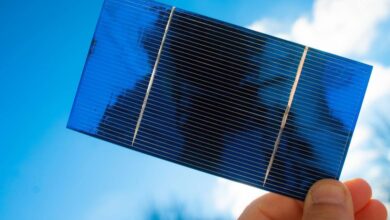How Lifeline is Empowering Communities and Individuals

In the USA, Lifeline is a program that provides free phone and internet service to low-income households. Eligibility is based on income and participation in state, federal or tribal assistance programs.
Benefits
The State of Missouri provides several programs to help low-income individuals and families. These include the Lifeline Program, which offers free cell phone service and internet discounts, which help pay for a new or existing landline telephone service. This program is intended to help struggling families and individuals stay connected to their loved ones, access important services, and find jobs.
The benefits of Lifeline are vast and varied, ranging from a free cell phone to an internet service. In addition, it can provide emergency alerts and medical assistance. It also helps families stay in touch with their doctors, schools, and employers. These benefits can make a big difference in the lives of those who need them most.
To qualify for Lifeline, a family’s total household income must be at or below 135% of the federal poverty guidelines. This includes public assistance such as MO HealthNet, TANF, SNAP food stamps, SSI disability, low-income housing, or Section 8. However, there are a few exceptions to this rule. Residents of Missouri and other states can also get additional benefits from the Affordable Connectivity Program (ACP). The ACP is a program that provides discounted internet service to households with low incomes. To qualify for the ACP, households must be eligible for Lifeline or other government assistance programs.
Eligibility
If you live in Missouri, you can get free government phone service with the help of the Affordable Connectivity Program (ACP). The ACP is part of the Lifeline program the Federal Communications Commission created in 1985 to ensure that low-income households could access jobs, family, and emergency services via their phones. The eligibility for the Lifeline service in the state of Missouri is determined through various means, including participation in public assistance programs or receiving cash benefits from the Social Security Administration. In addition, consumers residing on tribal lands can qualify for additional discounts on mobile connectivity services.
The research also assessed participants’ expectations for the Lifeline program, finding that their expectations were similar regardless of whether they contacted the program by phone, text, or email. The most important expectation for help-seekers was that they would feel less upset and less alone. They also expected to receive information and referrals and to have someone listen to them.
The program is a great resource for families struggling with their electricity bills. It helps them save money on their energy costs and enables them to pay for other essential services. As more states continue to expand the program, many low-income families can benefit from discounted rates on their electricity bills. This is a win-win situation for both the family and the state.
Requirements
Many low-income families struggle to pay for utilities such as electricity. However, lifeline programs can help these households by offering discounted energy rates. This can significantly reduce the burden on these families and enable them to live more comfortably. These discounts can also make it easier for these families to access healthcare, call or text loved ones, and use the internet. These programs are important for reducing poverty and social isolation. They can even help these families afford basic amenities, such as a warm home and adequate food.
To qualify for a free cell phone through the Lifeline program, you must have an income below 135% of the federal poverty guidelines. You may also be eligible if you participate in government assistance programs like Medicaid or SNAP (Supplemental Nutrition Assistance Program). If you are still determining whether you meet the qualifications, check with your service provider to see if you are eligible for ACP.
If you qualify for Lifeline and ACP, enroll today to get the benefits of free phone and service! You can also find out more about the ACP program online. The program was established in 1985 to ensure that all Americans can access jobs, family, and emergency services through their phones.
Costs
Many low-income families in Missouri need help paying for phone and internet services. The federal government offers two programs that help them stay connected and save money. One is the Lifeline program, which gives eligible households a free cell phone and unlimited talking and texting. The other is the Affordable Connectivity Program (ACP), which provides low-income families fast and affordable broadband internet service. Both programs are funded by the Universal Service Administration Company (USAC) and the FCC.
To qualify for Lifeline, a household must have a total income of 135% or less of the Federal Poverty Guidelines. A family may also participate in a state assistance program to qualify. The most common programs are MO HealthNet, Temporary Assistance for Needy Families, SNAP food stamps, or SSI disability benefits. Those who receive Section 8 housing or other public support programs also qualify.
The proposed change to Lifeline would make it harder for some households to keep their phones and Internet service, which can help them find jobs and stay in touch with friends and family. These changes are cruel, and the FCC should instead bolster Lifeline with new reforms to ensure it is efficient and effective. It is a vital resource for ensuring that all Americans have access to the opportunities and security that come with a connection to the outside world.





